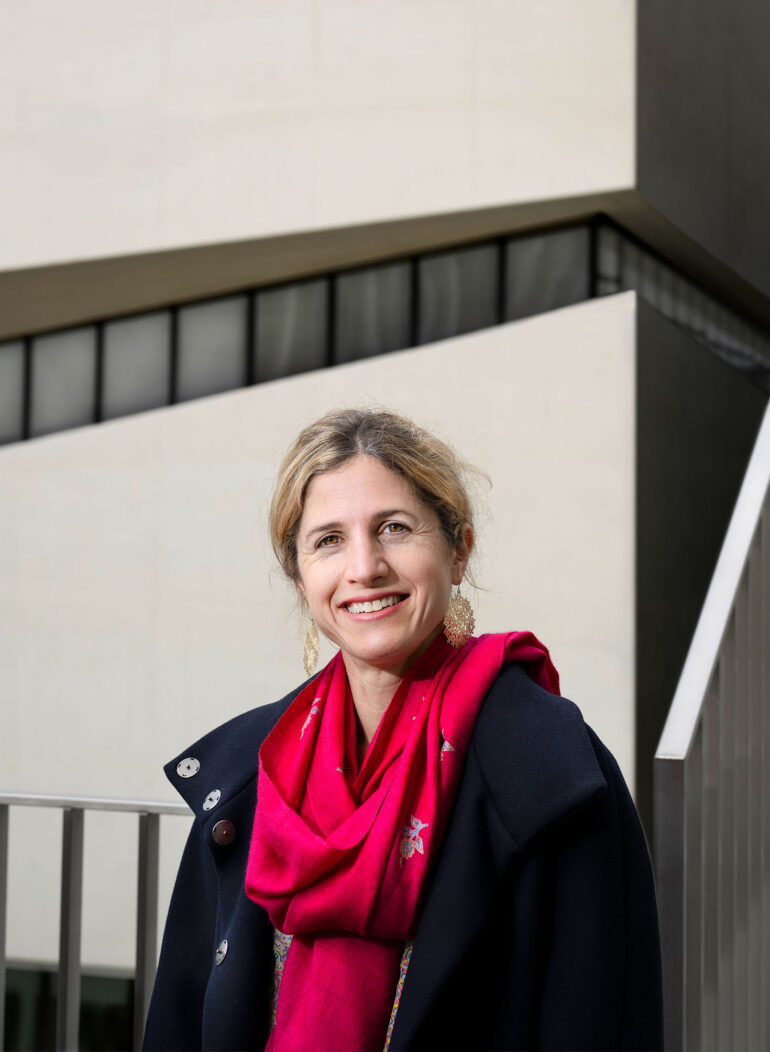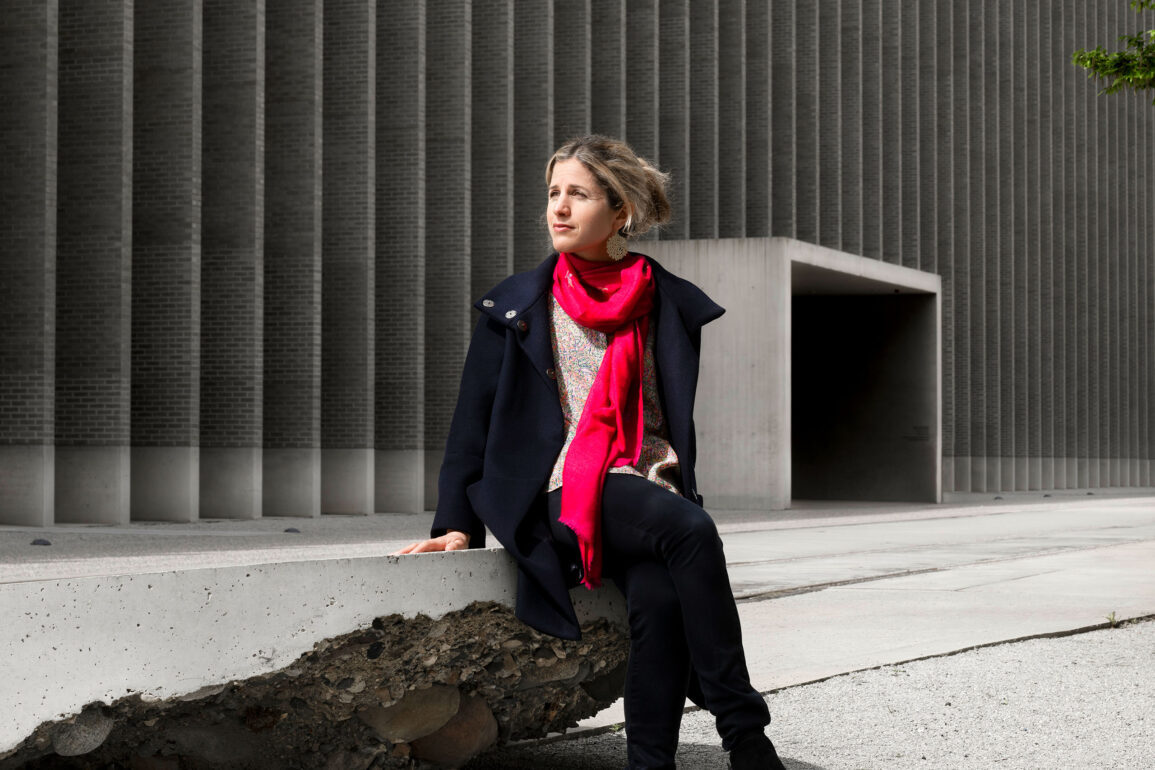You have worked for the Bill & Melinda Gates Foundation and as founding director at Giving Pledge: why did you launch your own initiative, Co-Impact?
For me, the burning issue was how can philanthropy have more impact. Many philanthropists I worked with at The Giving Pledge were grappling with this question. I left The Giving Pledge in 2014 to pursue precisely this issue.
How did you go about it?
I was already aware of the philanthropists’ perspective. So I focused on the opinions of those people who implement projects, influence change for the better and lead communities. Over the course of three years, I met with individuals around the world to find out what they want from philanthropy.
And what was their answer?
They repeatedly said that they want philanthropy to tackle the issues that matter, with a commitment that is commensurate with the magnitude of the challenges. Many leaders are already dealing with these issues and thinking about how they can increase their impact. It was clear, however, that philanthropy is not fulfilling its potential. That’s how the idea for Co-Impact came about. We want to bring together individual and institutional donors to support the visions of those who already advocate systemic change. We want to scale the impact to improve the lives of millions for the long term. We didn’t just want to talk about this, but wanted to secure the scale and kind of funding needed to make a meaningful difference.
‘In the design phase, they can dream up ideas and plan how to achieve system change.’
Olivia Leland
Founder and CEO Co-Impact
What do you mean by systemic change?
Our intention is to change the fundamental systems that govern societies, thereby making them more effective and equitable for everyone. We are aiming for change that results in a more equitable world. To this end, from our Foundational Fund, we provide large-scale, flexible and long-term funding, and support, to organisations involved in improving the systems of education, health and economic opportunities. We also launched a second fund last year, our Gender Fund, which builds on our experience from the Foundational Fund, to support advancing gender equality and to promote women’s leadership.
You have your own gender equality fund. How credible are representatives from industrial nations that still need to take action themselves when it comes to equality?
No country in the world has achieved gender equality. We are all involved in this issue. It is time to stand up and support efforts, ongoing and new that promote equality. There is still very little funding activity, but with our programme partners, we are seeing approaches that work. We must support these and communicate the success stories. I am confident that if we share these stories of impact, this will encourage more people to donate to this cause.
Is equality a condition for, or a consequence of, change?
A system doesn’t work if it doesn’t suit half of society. When talking about gender, we also have to think about inequalities stemming from race/caste, class and other factors that exacerbate discrimination. We will only achieve gender equality if we resolutely and consistently focus on it in every initiative that we support. Co-Impact is committed to funding organisations which are rooted in the Global South. We hope that the Global South will also provide momentum for the North, especially when it comes to equality. We have a lot to learn.
Regarding all your projects – how do you fund them?
We pool the resources of various funders around the world. This is what allows us to provide larger scale funding to our programme partners, the organisations that are creating change at the local level. Our programme partners then work collaboratively with governments and other relevant people – activists and experts – and organisations working within their system, to tackle the major issues.
How do you achieve equitable collaboration when some people have lots of money and others are dependent on subsidies?
This is one of our core values: we focus on communities and programme partners. We constantly measure our performance against this value. Our programme partners set the agenda for our meetings; they decide what we discuss. We simply play a supporting role.
Do sponsors simply put up the cash or do they get involved?
We create spaces throughout the year to bring together our whole community in person and virtually, so those who want to can get involved and share ideas with our programme partners, other funders and experts, while considering and exploring solutions. The true value of the partnership is that they are all part of it.
You are aiming for systemic change. Do you also receive criticism in terms of the strategy you are pursuing?
It is not our strategy. We consciously support the vision of our local programme partners, which implement change. And they do not work in isolation, but within a network of governments and other organisations. It is not about achieving our vision. This is extremely important in philanthropy. Discussions with our programme partners are key. We consider, where might criticism come from? How do we bring different perspectives together? What do others think about it? These are hugely important questions and I am glad that philanthropy is addressing them. Our partners give this a lot of thought during the design phase.
What happens during the design phase?
Most philanthropy is still involved in short-term project work. This will not contribute to systemic change. During the design phase, we provide the means and space for our programme partners to imagine what is possible. They will probably have already considered these questions at weekends or during the night – during the design phase, they can engage with them more deeply, come up with ideas and plan how to achieve systemic change. They develop a plan and decide what they need to scale their work. The phase begins with a kick-off workshop. It is very important to us that our programme partners take ownership of this phase. They define the workshop. We provide resources and ask questions, but our programme partners set the agenda.

‘The role of philanthropy is to provide resources and support at the necessary scale, at the appropriate moment, and in the right way.’
Olivia Leland
Founder and CEO Co-Impact
So what role should philanthropy play in our society?
The role of philanthropy is to provide the necessary level of resources and support at the right moment and in the right way. This should allow programme partners and communities, local organisations that understand their environment, to implement their visions and facilitate strategic coherence with the help of long-term support. To do this, we have to ask programme partners what they need. We have to establish a relationship with them. It is about building personal contact and rapport with the people in these organisations.
How do you find suitable projects?
When we launched Co-Impact, we defined our grantmaking criteria and issued open calls. When we issued an open call for our Gender Fund last year, we received over 11,000 applications. But we could only accept 30. We used a detailed review process, including using independent reviewers to select the initiatives we are now supporting.
Is it worth issuing an open call given the effort involved?
It is a lot of work for the organisations applying. As we now have a large network in each of the countries where we work, we have decided not to issue an open call this year. Instead, we are working with our local partners to specifically find suitable initiatives, partnerships and projects. But this doesn’t mean we have completely done away with open calls.
What are the positive aspects of an open call?
It showed that there are so many more worthy initiatives than we are able to support. There are local, women-led organisations that are making a big difference, and can do so much more with additional funding.
Are there any risks if you only support projects you specifically select?
It is important that our team also receives external recommendations. This is how we hear about initiatives that are not yet on our radar. Otherwise, philanthropy always ends up supporting the same ones.
How do you go about supporting a project?
We hold individual talks with each organisation, discussing what an in-depth partnership may look like, what we expect from them and vice versa. The fact that we are impressed with an initiative does not necessarily mean that Co-Impact is best-placed to support it. During these talks, we aim to find out whether the initiative is suitable for us and they also need to establish whether we can provide suitable support. It may just not be the right time.
When you decide to collaborate, how long does this normally last?
Following the one-year design phase, we support initiatives for several years. The normal timescale is five years.
How much support do you provide?
We are flexible and respond to our partners’ individual needs. As well as funding the design phase, we normally contribute 5 to 10 million US dollars towards each initiative. In some cases, grants can also range from 20 to 25 million US dollars.
What kind of legal entity is Co-Impact?
When I launched Co-Impact in 2017, I didn’t just want to set up a new organisation. Back then, there were hardly any models for pooling funding for the Global South. We wanted to use our experience to find the right form, to see what works. After three years, our collaborative community decided to set up an organisation. It made sense for us. Today, Co-Impact is registered as a 501c3 non-profit organisation in the US, in accordance with federal law. Our advisory boards and board of directors include specialists in philanthropy, equality and social justice. We have also set up organisations in other countries, where necessary. But we don’t have a head office.
Do you have a global structure?
Our team members work in 9 different countries, with the biggest team in Kenya, and our sponsors come from 17 countries around the world. We are a global group.
You yourself live in Switzerland. What links do you have to the philanthropy scene in Switzerland?
We collaborate with philanthropists and donors from Switzerland, and I would like to meet more of them. We have a large network of Co-Impact partners, and it’s extremely exciting sharing ideas with them. We can learn from each other, find out what others are doing, and where there are potential partnerships. There are many opportunities for international learning, finding common solutions and for mutual support.


